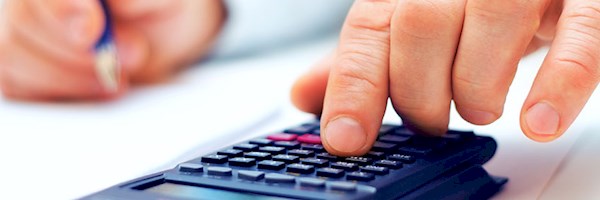Before you can look at buying a home, you need to know the maximum price you can pay. Here are five easy steps to help you calculate this.
Step 1: Maximum monthly bond repayment
Assuming you want to finance at least a part of the purchase cost with a bond, your first step is to work out what your maximum bond repayment could be. Banks each have their own calculations, but typically the maximum bond repayment will be 25 to 30% of your gross combined income per month. This is limited to your free cash flow after you have paid all your monthly expenses (excluding your current rent or bond payments).
For example, if your combined gross monthly income is R20 000, the maximum bond repayment you could qualify for would be around R6 000 - assuming you have at least R6 000 left each month after paying all your expenses.
Banks will normally use 100% of your gross monthly income in the calculation if you are a salaried employee. But if you are self-employed or earn commissions which vary from month to month then not all of your monthly income may be included.
Step 2: Maximum bond amount
Once you have estimated your maximum monthly repayment, you can estimate what the initial bond amount would be for that monthly repayment by using a financial calculator and an estimate of the interest rate.
The prime interest rate is currently 9% and a bank will often charge you more than this, for example “prime + 2%” – which would be 11%. However, when a bank assesses the risk it may work out your maximum bond using an inflated interest rate so that there is some margin for a future increase in interest rates. In other words, even though the bank may decide to charge you interest at prime + 2%, it could work out your maximum loan using an interest rate of prime + 4%.
As an example, let's say the maximum monthly repayment you could afford is R6 000. At an 11% interest rate, this would mean that you may qualify for a bond of about R580 000. Using a 13% interest rate, your maximum bond would be only about R510 000.
Step 3: Combine bond with cash
If you add your estimated maximum bond size to the available cash in your bank account, the total will give you the maximum amount you could spend, including transfer costs.
For example, if you think you will qualify for a R510 000 bond and you have R200 000 in cash, then the amount you could spend would be R710 000. Note that this R710 000 would have to include transfer costs, so the maximum price of a property you could buy would be less than R710 000. Also, you may need to have some cash available to renovate the property so this would also affect the price that you could afford to pay.
Step 4: Loan-to-value
Banks do sometimes grant 100% bonds but usually they require a buyer to put down a deposit. The “loan-to-value” is the percentage calculated by dividing the bond amount by the purchase price. For example, a bond of R510 000 on a purchase price of, say, R670 000 would mean a loan-to-value (LTV) of 76%. Banks have targets for LTVs – for example, for the same buyer, they may only agree to a 40% LTV for a vacant plot, rather than perhaps 80% for a residential home.
In practice this means that once you have estimated your maximum bond, you cannot assume that the bank will automatically finance the purchase of a property for the same amount. This would imply a 100% LTV (which can happen, though).
For example, if you wanted to buy a property for R510 000 and you believed that you qualified for a R510 000 loan, the bank may only grant a 90% bond for that property – meaning that you would have to come up with cash of R51 000 for the 10% deposit. And you would also need to pay the transfer costs, which in this case, would be about R26 000.
Step 5: Prequalify
As you can see, there are many assumptions built into the calculation of what you might be able to afford. It depends on your income, how much of your income the bank sees as being stable, what interest rate they will charge you, what the LTV is etc.
Once you've done your initial calculations, you should re-look at your assumptions and then prequalify for a bond with a bank or mortgage originator.
Prequalification doesn't guarantee anything but it gives you a good indication of what sort of bond you could qualify for. And having done the calculations yourself will give you a much better understanding of your budget constraints. Ultimately you will be able to determine a target price for your investment that you know you can afford.
By: David de Waal, CEO of Steeple Estate Agents
